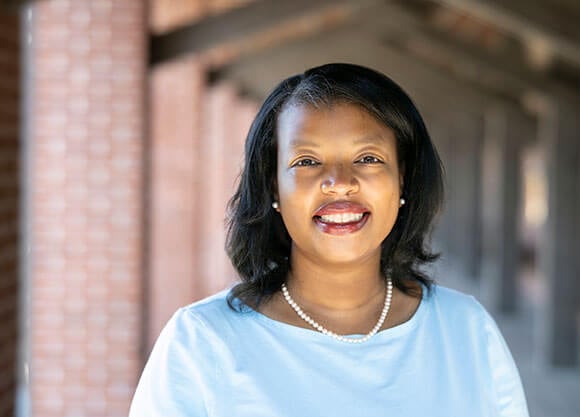
Professor to discuss the 'First Thanksgiving' at Indigeneity Initiative Teach-In
November 09, 2021
Quinnipiac is hosting four Commencement ceremonies May 11-12 on the Mount Carmel Campus. Watch live and get all the details

November 09, 2021

Christina Dickerson, assistant professor of history, encourages members of the university to rethink the first Thanksgiving, as part of the university's day-long Indigeneity Initiative Teach-In.
“The first Thanksgiving plays an important role in most Americans' understanding of U.S. history," Dickerson said. "As Americans, we need a deeper understanding of this seminal event and what it meant and means for Indigenous nations."
Students often learn that the first Thanksgiving was a peaceful event where indigenous people and pilgrims came together, but that image sugar-coats the real history, she said.
“We often view the first Thanksgiving as a benign story of intercultural cooperation, for Indigenous nations in New England, it marked the beginning of a painful period of death and displacement,” said Dickerson.
Dickerson said she hopes students leave this event with a more open mind and a better understanding of how the first Thanksgiving impacted the indigenous populations of New England — and how they are still living with the impacts today.
“Despite the devastating consequences of colonization, Indigenous nations have persevered and continue to preserve their culture, language, history and sovereignty,” Dickerson said.
Dickerson encourages students to learn more about this topic by visiting the Akomawt Educational Initiative, watching the PBS documentary, “We Shall Remain: After the Mayflower” and visiting one of the several Native-run museums in Connecticut.
Quinnipiac Today is your source for what's happening throughout #BobcatNation. Sign up for our weekly email newsletter to be among the first to know about news, events and members of our Bobcat family who are making a positive difference in our world.
Sign Up Now